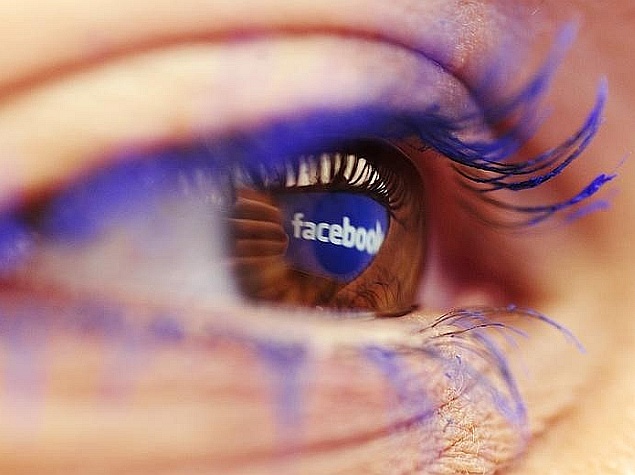- Home
- Social networking
- Social networking News
- Stress and Social Media? It's Complicated, Finds Study
Stress and Social Media? It's Complicated, Finds Study

Researchers concluded that the stress facing some users of social networks was related to "the cost of caring."
Using digital technologies does not directly cause stress, but social media can increase awareness of problems facing friends and family, and this stress is "contagious," researchers said Thursday.
A report by the Pew Research Center and Rutgers University researchers concluded that the stress facing some users of social networks was related to "the cost of caring."
"There is no evidence in our data that social media users feel more stress than people who use digital technologies less or not at all," said Rutgers researcher Keith Hampton, one of the author of the report.
Hampton said data did not support the notion that people become stressed from keeping up with social media networks like Facebook and Twitter.
But he added that "learning about and being reminded of undesirable events in other people's lives makes people feel more stress themselves. This finding about the cost of caring adds to the evidence that stress can be contagious."
Overall, the researchers found frequent Internet and social media users do not have higher levels of stress than the general population, and that many who use Twitter, email, and cell phone picture sharing report lower levels of stress.
There were, however, some gender differences in how social media use affected stress.
"There was no statistical difference in stress levels between men who use social media, cell phones, or the Internet and men who do not use these technologies," the researchers wrote.
(Also See: Vietnam Prime Minister Says Impossible to Ban Social Media: Report)
But "a women who uses Twitter several times per day, sends or receives 25 emails per day, and shares two digital pictures through her mobile phone per day, scores 21 percent lower on our stress measure than a woman who does not use these technologies at all."
Facebook can spread stress
In cases where digital technologies increase awareness of stressful events in the lives of others, in particular with Facebook, the researchers found stress to be contagious.
"Facebook was the one technology that, for both men and women, provides higher levels of awareness of stressful events taking place in the lives of both close and more distant acquaintances," the researchers wrote.
A woman with an average size network of Facebook friends is aware of 13 percent more stressful events in the lives of her closest social ties, and men are aware of eight percent more, the study found.
"The cost of caring is particularly felt by women," the researchers said.
"This is a result of two facts about women and stress: first, women report higher levels of stress to begin with, and second, women are aware of more stressful events in the lives of their friends and family."
The report is based on a survey of 1,801 American adults from August 7 to September 16, with a margin of error estimated between 2.6 and 3.3 percentage points, depending on the group.
A related study released last week by Pew found Facebook remains the most popular social network among Americans, used by 71 percent of those who use the Internet.
Other platforms saw growth but remained far behind, including Pinterest and LinkedIn (28 percent), Instagram (26 percent) and Twitter (23 percent). That report showed 81 percent of Americans use the Internet.
Catch the latest from the Consumer Electronics Show on Gadgets 360, at our CES 2026 hub.
Related Stories
- Samsung Galaxy Unpacked 2025
- ChatGPT
- Redmi Note 14 Pro+
- iPhone 16
- Apple Vision Pro
- Oneplus 12
- OnePlus Nord CE 3 Lite 5G
- iPhone 13
- Xiaomi 14 Pro
- Oppo Find N3
- Tecno Spark Go (2023)
- Realme V30
- Best Phones Under 25000
- Samsung Galaxy S24 Series
- Cryptocurrency
- iQoo 12
- Samsung Galaxy S24 Ultra
- Giottus
- Samsung Galaxy Z Flip 5
- Apple 'Scary Fast'
- Housefull 5
- GoPro Hero 12 Black Review
- Invincible Season 2
- JioGlass
- HD Ready TV
- Laptop Under 50000
- Smartwatch Under 10000
- Latest Mobile Phones
- Compare Phones
- Vivo Y500i
- OnePlus Turbo 6V
- OnePlus Turbo 6
- Itel Zeno 20 Max
- OPPO Reno 15 Pro Mini 5G
- Poco M8 Pro 5G
- Motorola Signature
- Vivo Y50e 5G
- Lenovo Yoga Slim 7x (2025)
- Lenovo Yoga Slim 7a
- Realme Pad 3
- OPPO Pad Air 5
- Xiaomi Watch 5
- Huawei Watch 10th Anniversary Edition
- Acerpure Nitro Z Series 100-inch QLED TV
- Samsung 43 Inch LED Ultra HD (4K) Smart TV (UA43UE81AFULXL)
- Asus ROG Ally
- Nintendo Switch Lite
- Haier 1.6 Ton 5 Star Inverter Split AC (HSU19G-MZAID5BN-INV)
- Haier 1.6 Ton 5 Star Inverter Split AC (HSU19G-MZAIM5BN-INV)

















